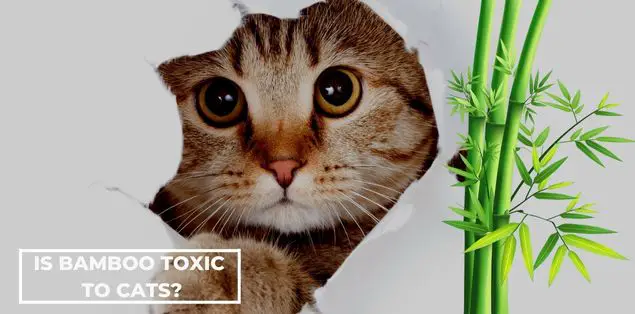So, is bamboo toxic to cats? Knowing what could be harmful to your cat can take some time if you’re a new cat owner.
For cats, some plants can be hazardous. Nevertheless, if you’re a plant lover and enjoy growing plants in and around your home, you must know which plants are safe for cats and which are not.
Is Bamboo Bad for Cats?
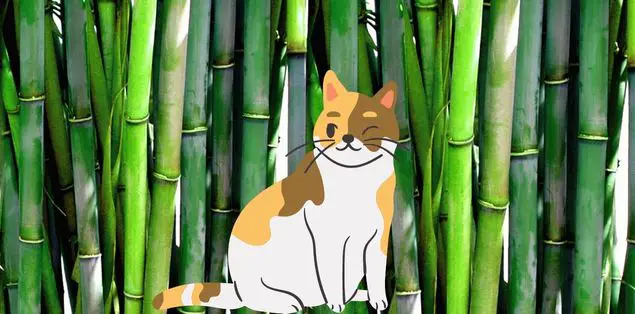
Although the American Society for the Prevention of Cruelty to Animals (ASPCA) claims that bamboo plants are non-toxic, only few popular bamboo species fit this description. However, there are many bamboo plants that can be harmful for cats.
Cats can safely consume true bambusoideae bamboo because it is non-toxic. Your cat is most likely to venture outside, where the bambusoideae family of plants is grown.
Let’s examine bamboo in more detail to see whether it’s okay to have around your cat. We’ll talk about the various varieties of bamboo and what can happen if your cat mistakenly consumes one of them.
Types of Bamboo Plants
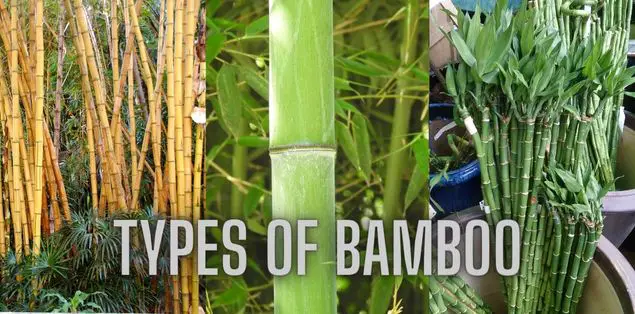
Different bamboo plants have different qualities depending on the type of bamboo. Golden bamboo grows wildly in the forest. It is typically sold after cutting and presented in lovely glass jars.
True bambusoideae species of bamboo are thought to be non-toxic and safe for cats.
Lucky bamboo (Other names – Goddess of Mercy’s plant, ribbon plant, sacred bamboo, and Heavenly bamboo) is a common indoor plant. For houses with cats, these types are not the ideal additions. Instead, we will get to their toxicity and potential for mild to moderate symptoms shortly.
Can Cats Eat Bamboo?
While waiting for their meals, some cats like to gnaw on leaves. However, if they overeat, they will likely become sick and vomit, but don’t worry — bamboo is one plant that cats can eat in limits without becoming ill.
Because they tend to seek out and consume plants, cats may unintentionally try the taste of houseplants. However, such behavior may be unwanted at best and harmful at worst if leaves or other plant components are poisonous.
Make sure the bamboo in your home is a safe kind as result. Your cat chewing on it won’t be a problem if it is.
What Happens if a Cat Eats Bamboo?

True bamboo is safe for your cat to consume. It might even be advantageous for the cats. Cats are carnivores from birth. It indicates that they eat meat and protein for nutrition. Twenty-two percent of true bamboo is protein. It transforms it into a nutritious treat for your cat. Although your cat will benefit more from animal protein, eating bamboo on occasion shouldn’t be a problem. True bamboo doesn’t harm cats.
However, some bamboo species can be harmful and Lucky bamboo is one of them and is simple to locate. This plant, referred to as the money tree or heavenly bamboo, isn’t bamboo. Having this plant near your cat might be quite harmful because it is toxic to them.
Lucky bamboo plants can typically make your cat quite ill. The amount of the herb they’ve consumed determines how sick they get. Try to estimate how much your cat has eaten before calling your veterinarian. Then, they can choose the best course of treatment.
How Toxic Is Lucky Bamboo to Cats?
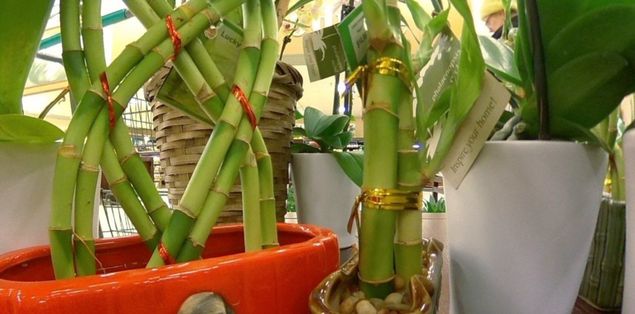
Although to us, Lucky Bamboo is a symbol of joy and wealth, our cats don’t necessarily associate it with that. This specific plant’s leaves have a minor level of toxicity, which can be dangerous to your domestic pets. However, most symptoms are minor.
It would help if you kept an eye out for the Lucky Bamboo shoots. They are thought to contain saponins and taxiphyllin, which are much more likely to disturb than the real leaves.
When ingested by cats, it causes drooling, dilated pupils, stomach pain, elevated heart rate, vomiting, incoordination, sorrow, and weakness in cats. Contact your veterinarian for guidance on handling the toxin if you think your cat has ingested lucky bamboo.
When you don’t take into account the fact that cats frequently don’t eat plant stems and shoots, this seems much scarier. Although you could occasionally catch them slapping a leaf or two, it’s doubtful that your cat will swallow any of the plant material.
When Touched, Are Bamboo Plants Poisonous To Cats?
Any variety of bamboo is safe to touch. Consequently, touching, feeling, or brushing against a bamboo plant is fine.
How Should You Proceed if Your Cat Eats Toxic Bamboo Plant?
The most delicate piece of advice is to avoid problems before they arise. For example, a diagnosis can be challenging. However, the most crucial advice is to maintain your composure if your cat exhibits any symptoms and you suspect it has eaten poisonous bamboo. Cats can sense when you’re upset and may choose to flee or hide from you. So while extracting the plant from the cat, make a calm and soothing talk to your cat.
Take your cat to the veterinarian while securing him in a cat box or travel-safe cat bag. Then, take a sample of the plant and show it to your veterinarian so that he can determine the best approach.
How To Prevent Your Cat From Consuming Bamboo Leaves?
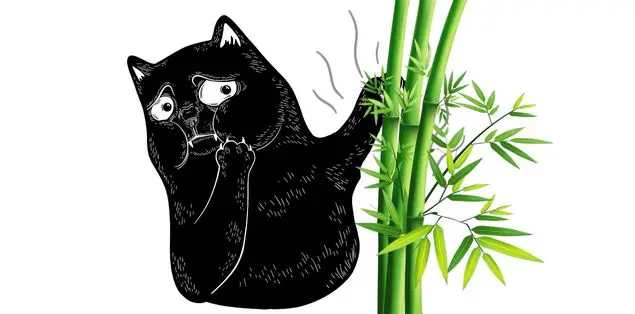
Cats are highly olfactory. Therefore, one method of getting cats to quit eating bamboo is making your plants smell disgusting.
Additionally, the cats detest the scent of citrus. To prevent your cat from eating these leaves, rub the soil with a lemon or orange peel. Again, these can be placed in little organza drawstring bags and hung from the plant.
It’s also a good idea to use over-the-counter pet repellents, but only those that are specifically formulated for use on pets. Any others could be hazardous to your cat or even your bamboo. It is important to spray a little leaf first and test it before sprinkling the whole plant. Then, before spraying the whole plant or following the directions, give the plant 24 hours.
Can My Cat Pass Away From Eating Lucky Bamboo?
Although lucky bamboo plant is considered non-toxic and beneficial for people, it can be extraordinarily deadly or dangerous for pet animals.
The ASPCA’s Poison Control Center identified the lucky bamboo as a harmful chemical. Animals should not consume it, including cats, dogs, or other species. It is known to cause stomach discomfort.
Take your cat to the closest veterinarian or healthcare provider as soon as you notice any unfavorable signs in them. In the worst of cases, your cat may pass away from consuming too much of this bamboo!
Is it Safe if Cats Drink Bamboo Water?
Indeed, cats can ingest bamboo water. It is helpful and in no way dangerous. Bamboo filters impurities and toxins from the water supply as long as it is in good health.
Is Bamboo Palm Toxic To Cats?
In Mexico and Central America, where the environment is humid and the sun is intense, the bamboo palm, often referred to as the reed palm, naturally flourishes.
It’s acceptable if a pet who enjoys plants is attracted to the plant’s shiny green leaves. Around bamboo palm plants, cats are secure.
Final Words – Is Bamboo Toxic to Cats?
It’s unpleasant to learn that some of the prettiest houseplants harm cats. However, maintaining the security and happiness of our kitties is our top priority. Even if it necessitates omitting some of the houseplants.
Growing non-toxic bamboo in your yard can be a terrific way to add brightness and richness to your living area if you’re a fan of bamboo. It’s sure to be just as beloved by your cat!
